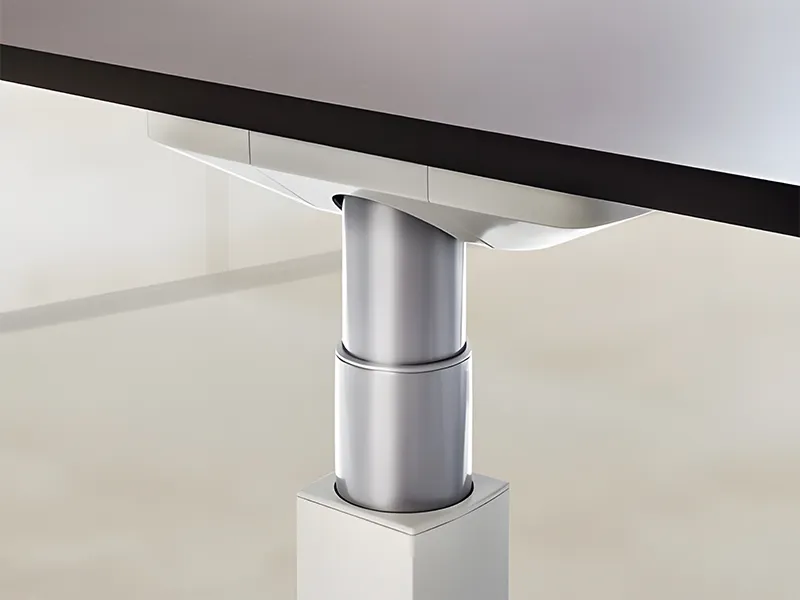High-Performance Precision Steel Tubes for Automotive Applications and Components
Dec . 04, 2024 09:51
Automotive Precision Steel Tube Parts The Backbone of Modern Vehicles
In the modern automotive industry, precision is paramount. As vehicles become more complex and demands for efficiency and performance rise, the components that make up these machines must also evolve. Among the critical components are automotive precision steel tube parts, which are integral in various applications, from structural frames to exhaust systems.
Understanding Precision Steel Tube Parts
Precision steel tube parts are manufactured from high-quality steel, ensuring durability and strength. These tubes are typically produced with stringent tolerances, which means that their dimensions are meticulously controlled during the manufacturing process. This precision is crucial for several reasons; it ensures a perfect fit within the vehicle's assembly, supports optimal performance, and enhances safety by reducing the risk of failure under stress.
Applications in the Automotive Industry
Automotive precision steel tube parts are utilized in numerous applications. Some of the key areas include
1. Chassis and Structural Components The chassis of a vehicle is essentially its backbone, providing the necessary support for the body and other components. Precision tubes are often employed in the construction of chassis elements because of their strength-to-weight ratio, which allows for lighter vehicles without compromising structural integrity.
2. Exhaust Systems The exhaust system plays a critical role in controlling emissions and ensuring the vehicle operates efficiently. Precision steel tubes are used to create the exhaust pipes, ensuring they can withstand high temperatures and corrosive gases while maintaining an optimal flow of exhaust.
3. Suspension Systems Suspension components must provide both comfort and control, and precision steel tube parts are commonly found in struts, shocks, and control arms. Their ability to handle dynamic loads while maintaining precise dimensions is essential for vehicle stability and performance.
4. Fuel Lines and Hydraulic Systems In modern vehicles, fuel efficiency and effective hydraulic systems are crucial. Precision steel tubes are utilized in fuel lines and hydraulic circuits due to their strength, durability, and resistance to pressure, ensuring reliable vehicle operation.
Manufacturing Processes
The production of precision steel tube parts involves various processes, including
automotive precision steel tube parts
- Cold Drawing In this process, steel tubes are drawn through dies at room temperature, which not only increases their strength but also ensures precise dimensions.
- Welding Many precision parts are formed through welding processes which can include longitudinal or spiral welding techniques. Advanced welding technologies help achieve strong joins that are essential for high-performance applications.
- Heat Treatment To enhance the mechanical properties of the steel tubes, heat treatment processes such as annealing or tempering are often applied. This step is crucial for achieving the desired hardness and flexibility.
- Finishing Processes Once the tubes are formed, they undergo various finishing processes, including polishing, coating, and inspection, ensuring that they meet the stringent quality standards required in the automotive sector.
The Importance of Quality Control
In the automotive industry, safety and reliability are non-negotiable. Therefore, quality control is a significant aspect of manufacturing precision steel tube parts. Rigorous testing methods, such as ultrasonic testing, magnetic particle inspection, and dimensional inspections, are conducted to ensure that each part meets predefined specifications. This meticulous approach helps in reducing the risk of component failure, ensuring that vehicles are safe for consumers.
Future Trends
As the automotive landscape shifts towards electric vehicles (EVs) and increased automation, the demand for precision steel tube parts is likely to grow. Manufacturers are exploring innovative materials and advanced techniques to produce lighter and more efficient components that can withstand the unique challenges posed by these new technologies.
Additionally, with an increasing focus on sustainability and environmental impact, manufacturers are investing in greener processes and materials. The development of tubes that utilize recycled materials or those that contribute to vehicle weight reduction is at the forefront of industry advancements.
Conclusion
Automotive precision steel tube parts are essential to the performance, safety, and efficiency of modern vehicles. From their crucial roles in structural integrity to their applications in advanced systems, these components represent the intersection of technology and engineering excellence. As the industry continues to evolve, the significance of precision steel parts will remain, ensuring that vehicles not only meet but exceed the expectations of consumers in a rapidly changing world.
 Afrikaans
Afrikaans  Albanian
Albanian  Amharic
Amharic  Arabic
Arabic  Armenian
Armenian  Azerbaijani
Azerbaijani  Basque
Basque  Belarusian
Belarusian  Bengali
Bengali  Bosnian
Bosnian  Bulgarian
Bulgarian  Catalan
Catalan  Cebuano
Cebuano  Corsican
Corsican  Croatian
Croatian  Czech
Czech  Danish
Danish  Dutch
Dutch  English
English  Esperanto
Esperanto  Estonian
Estonian  Finnish
Finnish  French
French  Frisian
Frisian  Galician
Galician  Georgian
Georgian  German
German  Greek
Greek  Gujarati
Gujarati  Haitian Creole
Haitian Creole  hausa
hausa  hawaiian
hawaiian  Hebrew
Hebrew  Hindi
Hindi  Miao
Miao  Hungarian
Hungarian  Icelandic
Icelandic  igbo
igbo  Indonesian
Indonesian  irish
irish  Italian
Italian  Japanese
Japanese  Javanese
Javanese  Kannada
Kannada  kazakh
kazakh  Khmer
Khmer  Rwandese
Rwandese  Korean
Korean  Kurdish
Kurdish  Kyrgyz
Kyrgyz  Lao
Lao  Latin
Latin  Latvian
Latvian  Lithuanian
Lithuanian  Luxembourgish
Luxembourgish  Macedonian
Macedonian  Malgashi
Malgashi  Malay
Malay  Malayalam
Malayalam  Maltese
Maltese  Maori
Maori  Marathi
Marathi  Mongolian
Mongolian  Myanmar
Myanmar  Nepali
Nepali  Norwegian
Norwegian  Norwegian
Norwegian  Occitan
Occitan  Pashto
Pashto  Persian
Persian  Polish
Polish  Portuguese
Portuguese  Punjabi
Punjabi  Romanian
Romanian  Samoan
Samoan  Scottish Gaelic
Scottish Gaelic  Serbian
Serbian  Sesotho
Sesotho  Shona
Shona  Sindhi
Sindhi  Sinhala
Sinhala  Slovak
Slovak  Slovenian
Slovenian  Somali
Somali  Spanish
Spanish  Sundanese
Sundanese  Swahili
Swahili  Swedish
Swedish  Tagalog
Tagalog  Tajik
Tajik  Tamil
Tamil  Tatar
Tatar  Telugu
Telugu  Thai
Thai  Turkish
Turkish  Turkmen
Turkmen  Ukrainian
Ukrainian  Urdu
Urdu  Uighur
Uighur  Uzbek
Uzbek  Vietnamese
Vietnamese  Welsh
Welsh  Bantu
Bantu  Yiddish
Yiddish  Yoruba
Yoruba  Zulu
Zulu 












